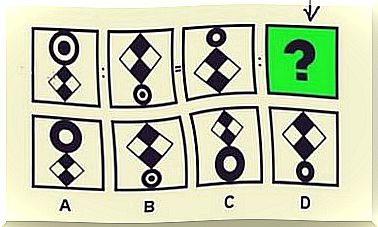Death Penalty: Where Is It Still In Effect?

The death penalty (or capital punishment) is the execution of a criminal who has been condemned by justice. This penalty is applied as a criminal sanction in cases of the so-called “capital crime”, or in the most serious ones.
We are talking about a penalty that has triggered innumerable internal and external conflicts in the countries that apply it or that once applied it. Indeed, the international community has adopted several instruments that prohibit this type of sanction.
In the course of this article we will analyze the main international regulations governing the application of the death penalty, but also the enforcement procedures.

Legislation on the abolition of the death penalty
Over the course of history, the death penalty has undergone an evolution, both in the methods of application and in the hypothetical contexts of application. Thus, since the earliest times, this penalty has been prescribed in the case of specific crimes or as a solution to conflicts between subjects of the same community.
Capital punishment was the pillar on which tribal societies stood. It was the tool to keep the peace, thanks to its deterrent effect. However, today it has been abolished in almost all democratic countries.
In Italy, the death penalty remained in force until 1889 in the Penal Code (only to be reintroduced by Fascism, from 1926 to 1947). Article 27 of our Constitution provides as follows: “The death penalty is not admitted, except in the cases provided for by the military laws of war”.
Subsequently, the Law of 13 October 1994, n. 589 would have abolished the only way that made the application of this penalty admissible, declaring it also abolished by the Military Penal Code.
Anti-enforcement tools
The international community has adopted several instruments that prohibit its application:
- The Second Optional Protocol of the International Covenant for Civil and Political Rights, intended for the abolition of the death penalty.
- The Protocol of the American Convention on Human Rights, relating to the Abolition of the Death Penalty.
- The protocol number 6 and number Protocol 13 of the European Convention on Human Rights on the abolition of the death and the abolition of the death penalty in all circumstances it.
- The Protocol of the American Convention on Human Rights, concerning the Abolition of the Death Penalty.
Thus, international law provides that the application of the death penalty should be limited to cases of international murder. This despite several organizations – including Amnesty International – argue that the death penalty is not a solution, pointing to the latter as a symptom of a culture of violence.

Current situation on the death penalty
Today more than two thirds of the countries of the world have abolished the De iure or de facto. There is a downward trend in the number of executions: in 20 years, more than 50 countries have banned it in their legislation. 108 states have eliminated the death penalty, 7 have abolished it in cases of common law crimes and 29 maintain a moratorium on executions. However, it continues to apply in 55 states.
Although it is difficult to determine the total number of executions, given the lack of official data in some countries, in 2018 Amnesty International recorded 690 executions, spread across 20 countries. A 31% reduction compared to the previous year, as well as the lowest figure ever recorded. Most of the executions took place in China, Iran, Saudi Arabia, Vietnam and Iraq (in that order).
Execution of persons who were minors at the time of the crime
Furthermore, some countries continue to sentence people who were under 18 to death when they committed the crime. This happens despite the fact that international human rights law prohibits the application of the penalty in these cases.
Since 1990, Amnesty International has documented 145 executions of minors in 10 countries: Saudi Arabia, China, the United States, Iran, Nigeria, Pakistan, the Democratic Republic of the Congo, Sudan, South Sudan and Yemen.
Although the number of executions of minors has decreased globally, its significance goes far beyond empirical data, as this practice casts doubt on the perpetrators’ commitment to respect international law. In any case, we are talking about a controversial topic, which has had some weight in the political campaigns of countries of the caliber of the United States.









